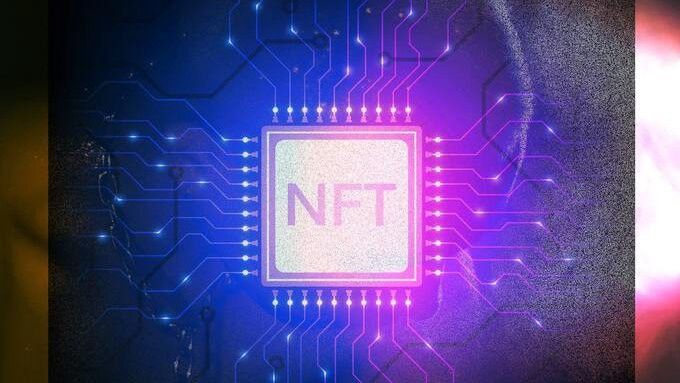Harnessing the Power of NFTs in Corporate and Government Sectors
In Brief
NFTs can effectively streamline logistics in both supply chain tracking and inventory oversight.
Public sector entities can implement NFTs as a means of innovating cost-saving strategies for government operations.
By adopting NFTs, organizations can enhance transparency in their operations, boosting trust among stakeholders.

In recent years, NFTs have surged in popularity, providing a novel and efficient means of monitoring and administering digital assets. Both businesses and governmental organizations can harness NFTs to enhance their operations and unlock fresh avenues for growth. This article will delve into how these sectors can utilize NFTs effectively.
NFTs can be applied in diverse ways for tracking and managing digital assets. For companies, they can optimize inventory oversight and enhance supply chain processes. They also offer possibilities for creating distinctive digital products and immersive experiences. In the realm of public administration, NFTs can streamline the delivery of services and foster greater efficiencies in government functions.
How to use NFTs for business?
Companies can leverage NFTs to enhance their inventory management and simplify supply chain tracking. Additionally, NFTs facilitate the creation of online unique products and user experiences.
Logistics
NFTs are invaluable for monitoring not just inventory but also digital assets in transit, aiding companies in refining their operations while ensuring timely delivery of goods in optimal condition.
Supply Chain Management
NFTs can trace goods as they move through the supply chain, equipping businesses with crucial data to refine operations and resolve potential issues proactively.
Product Development
By creating one-of-a-kind digital offerings, NFTs enable businesses to differentiate themselves from competitors and attract a wider customer base.
What are ways to incorporate NFTs into public sector functions?
Government bodies can utilize NFTs to enhance the provision of services and foster efficiencies in public administration processes.
Service Delivery
NFTs are instrumental in monitoring how government services are delivered, allowing for insights that can improve efficiency and pinpoint areas for enhancement.
Government Operations
With the use of NFTs, governmental agencies can fine-tune their operations, which contributes to improved efficiency and cost savings for taxpayers.
What advantages do NFTs provide to businesses and government entities?
Adopting NFTs in both business and public sectors offers several advantages, including:
Improved Efficiency
NFTs support both businesses and public organizations in streamlining their operations, leading to time and cost savings.
Increased Transparency
NFTs play a crucial role in enhancing the transparency of operations, which can help foster trust between organizations and their customers or citizens.
New Opportunities
Utilizing NFTs can create new avenues for growth, boosting revenues and facilitating job creation.
How to get started with NFTs?
Starting with NFTs can take different pathways; businesses and public entities can opt to use existing frameworks like Ethereum to create and manage their NFTs, or they may choose to build custom NFT platforms.
FAQs
Absolutely, companies can take advantage of NFTs for more efficient inventory oversight and tracking within their supply chains. Moreover, NFTs allow for the development of exclusive digital goods and immersive experiences.
Some of the potential risks related to NFTs include fraud and theft. Furthermore, considering that NFTs are still a relatively new technology, there’s a chance they may not achieve widespread acceptance.
Government bodies can utilize NFTs to enhance the provision of services and foster efficiencies in public administration processes.
Certainly, NFTs can serve to track how physical items travel through the supply chain, providing valuable insight to enhance operational efficiency and pinpoint challenges.
NFTs reside on a blockchain, which serves as a secure and decentralized record-keeping system. However, the risk of fraud and theft persists with any cutting-edge technology.
Conclusion
NFTs hold the transformative power to redefine how businesses and public administrations function. They promise to enhance efficiency, boost transparency, and generate new growth opportunities. To start exploring NFTs, organizations can utilize established platforms like Ethereum, or take on the challenge of creating their own NFT infrastructures.
Nonetheless, potential risks associated with NFTs must be recognized and carefully considered before diving in. Overall, the advantages NFTs bring could significantly enhance operational dynamics for both commercial and public entities.
Additional NFT resources:
Disclaimer
In line with the Trust Project guidelines , please keep in mind that the information provided on this page is not meant to constitute and should not be interpreted as legal, financial, investment, or any other professional advice. Always invest only what you can afford to lose, and seek independent financial counsel if you have uncertainties. For more information, we recommend checking out the terms and conditions alongside the customer support resources offered by the provider. MetaversePost stands for accurate and unbiased reporting; however, please note that market conditions can change without prior notice.






